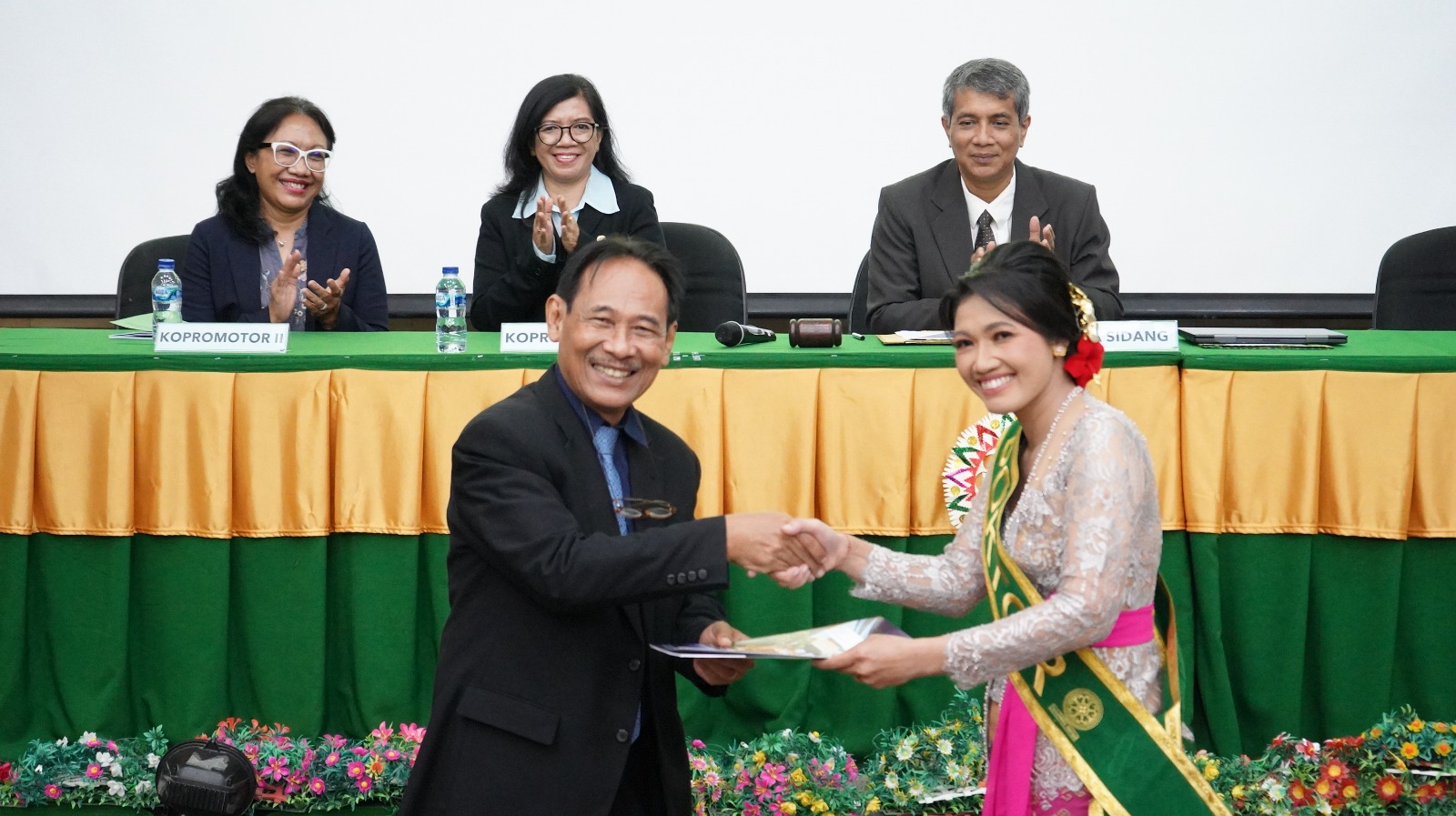New Doctor of Medicine Studies Genetic Polymorphisms and Risk Factors for Diabetic Nephropathy in Type 2 Diabetes Mellitus Patients in Bali
New Doctor of Medicine Studies Genetic Polymorphisms and Risk Factors for Diabetic Nephropathy in Type 2 Diabetes Mellitus Patients in Bali
Located at Lt. IV Udayana University Faculty of Medicine Building, Dr. Room. A.A Made Djelantik Denpasar Campus, the Doctoral Promotion exam has taken place with Promovenda candidate Dr. Asri Lestarini, M.Sc., with the dissertation title "RS35652124 Gene Polymorphism, Low HO-1 Protein and High TGF β-1 Protein as Risk Factors for Diabetic Nephropathy in Type 2 Diabetes Mellitus Patients in Bali". (26/1/2024)
Diabetic Nephropathy (ND) is a complication that often occurs in type 2 diabetes mellitus (T2DM). ND involves changes in hemodynamics, metabolism, oxidative stress, inflammation, and genetics, especially the antioxidant-regulated transcription factor NRF2. Genetic polymorphisms in NRF2, such as rs35652124, can influence the body's response to oxidative stress, and antioxidant enzymes such as HO-1 are also affected by NRF2. Transforming Growth Factor- β 1 (TGF-β1) is also associated with NRF2 activity. This study aims to examine how NRF2 gene polymorphisms, urinary HO-1 levels, and serum TGF-β1 levels can act as risk factors for ND in T2DM patients in Bali, Indonesia.
The method used was a case-control design with a total of 78 samples divided into case groups and control groups selected based on inclusion and exclusion criteria. PCR-RFLP examination was carried out to examine the NRF2 gene and ELISA to examine HO-1 and TGF-β1 levels. The data was then analyzed using univariate, bivariate test methods with the Chi Square test and Fisher-Exact test and multivariate with logistic regression.
The conclusion that can be drawn is that type 2 DM patients with high serum TGF-β1 levels are at risk of developing diabetic nephropathy. This research will provide insight into the association of oxidative stress factors and fibrosis in the development of ND in the Indonesian population, which may help in the prevention and management of this disease in the future.
The exam was led by the Dean of FK Unud, Prof. Dr. Dr. Komang Januartha Putra Pinatih, M. Kes, with a team of examiners:
1. Prof. Dr. Dr. I Wayan Putu Sutirta Yasa, M.Si (Promoter)
2.Dr. Dr. Urged Made Wihandani, M.Kes (Copromotor I)
3.Dr. Dr. Made Ratna Saraswati, Sp.PD-KEMD., FINASIM (Copromotor II)
4. Prof. Dr. Dr. Ketut Suastika, Sp.PD-KEMD
5. Prof. Dr. Dr. I Made Jawi, M. Kes
6. Prof. Dr. Dr. A.A Ngurah Subawa, M.Sc
7.Dr. Dr. Tjokorda Gde Dalem Pemayun, Sp.PD-KEMD, FINASIM
8.Dr. Dr. I Nyoman Wande, S.Ked., Sp.PK(K)
9.Dr. Dr. Ni Made Linawati, M.Sc
10.Dr. Dr. Sianny Herawati, Sp.PK(K)
Meanwhile, academic invitations are:
1.Dr. Dr. Susy Purnawati, M.KK
2.Dr. Dr. Ni Kadek Mulyantari, Sp.PK(K)
3.Dr. Dr. Made Agus Hendrayana, M.Ked
4. Ida Bagus Nyoman Putra Dwija, S.Sc., M.Biotech., Ph.D
5.Dr. Dr. Putu Nita Cahyawati, M.Sc
In this exam, Dr. Dr. Asri Lestarini, M.Sc.., was declared to have graduated as the 403rd Doctoral Graduate of the Medical Science Doctoral degree Study Program with the title of Very Satisfactory.










